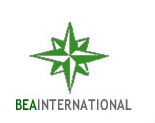
Driving Sustainability Through Waste Management and Carbon Credits in South Africa
Introduction
Waste management is a cornerstone of sustainable development in South Africa, offering significant opportunities to reduce environmental degradation while driving economic growth. BEA International, with contributions from Patrick Karani, has been at the forefront of exploring innovative strategies to manage waste sustainably and promote investments in carbon credits. This article delves into the role of waste management in mitigating climate change and fostering socio-economic development.
Waste Management as a Pathway to Sustainability
South Africa generates millions of tons of waste annually, with much of it ending up in poorly managed landfills. Key challenges include:
- Low recycling rates due to inefficient systems.
- Limited municipal capacity to manage waste effectively.
- Escalating environmental pollution, especially methane emissions from landfills.
Despite these hurdles, advancements in integrated waste management strategies (IWMS) have laid a strong foundation for improving waste disposal, recycling, and resource recovery.
The Role of Carbon Credits
One of the most promising areas in waste management is methane reduction from landfills. Methane, a potent greenhouse gas, is now being captured and converted into energy, creating dual benefits:
- Environmental: Mitigating climate change by reducing greenhouse gas emissions.
- Economic: Generating Certified Emission Reductions (CERs), or carbon credits, which can be traded in global markets.
The Clean Development Mechanism (CDM) under the Kyoto Protocol allows municipalities to monetize these reductions, providing vital funds for infrastructure development and sustainability initiatives.
Opportunities for Public-Private Collaboration
The private sector in South Africa has shown leadership in recycling and waste-to-energy projects. However, there is room for enhanced collaboration with local governments and international organizations. Notable opportunities include:
- Expanding recycling initiatives at the grassroots level to create jobs and alleviate poverty.
- Leveraging carbon finance to support waste management infrastructure.
- Promoting public-private partnerships (PPPs) for sustainable waste management systems.
A Vision for Zero Waste
South Africa’s Polokwane Declaration outlines ambitious goals to achieve "Zero Waste" by 2022. This vision emphasizes:
- Minimizing waste generation at the source.
- Promoting reuse, recycling, and resource recovery.
- Transitioning to a circular economy where waste becomes a resource.
BEA International champions this vision, aligning its efforts with global sustainability frameworks such as the United Nations Sustainable Development Goals (SDGs).
Conclusion
Effective waste management is more than an environmental imperative; it is a pathway to socio-economic development. By harnessing innovations like carbon credits and fostering partnerships, South Africa can transform its waste management challenges into opportunities for a sustainable future. BEA International remains committed to driving these initiatives, creating impact at both the local and global levels.